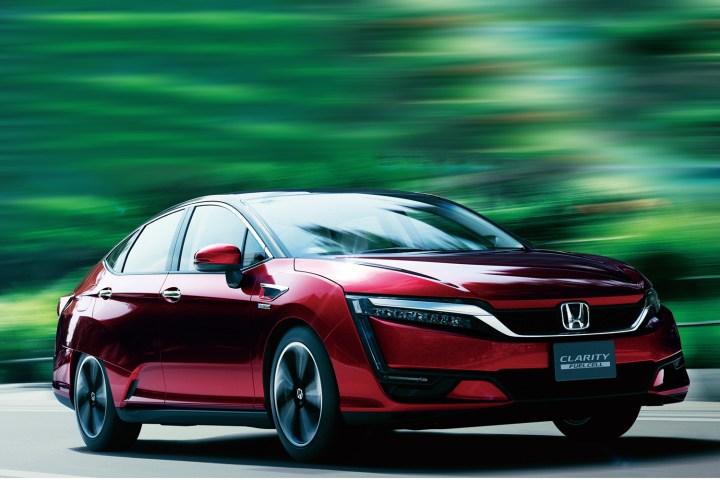
Each brand is chipping in $85 million to form a new company called Fuel Cell System Manufacturing (FCSM), as noted by Autocar. This entity will reside in GM’s battery manufacturing facility in Michigan. In addition to creating 100 new jobs, FCSM will apply economies of scale to fuel cell manufacturing, making this type of alternative energy vehicle cheaper for consumers.
“This foundation of outstanding teamwork will now take us to the stage of joint mass production of a fuel cell system that will help each company to create new value for our customers in fuel cell vehicles of the future,” said Toshiaki Mikoshiba, Honda’s North America COO.
Between the two manufacturers, only Honda has produced a customer-facing model: the Clarity Fuel Cell. However, GM has logged millions of miles of prototype testing, most recently while preparing its ZH2 pickup for the U.S. Army. Together, Honda and GM hold 2,220 patents in hydrogen fuel cell and hydrogen storage systems — according to the Clean Energy Patent Growth Index.
“The combination of two leaders in fuel cell innovation is an exciting development in bringing fuel cells closer to the mainstream of propulsion applications,” stated GM’s product development head, Mark Reuss. “The eventual deployment of this technology in passenger vehicles will create more differentiated and environmentally friendly transportation options for customers.”
It’s worth noting that while Honda has invested in hybrid and now hydrogen fuel cell tech, the Japanese automaker has yet to produce a pure electric vehicle. GM, however, is on the cutting edge of that trend with its 2017 Bolt EV. By spreading its resources across gas-electric hybrid, gas-engine generator EV, pure EV, and now hydrogen fuel cell systems, GM has the best chance of spotting whichever alternative energy trend has the best chance of market success.
Editors' Recommendations
- The Sony Honda Afeela car is peak CES, and I’m totally here for it
- Test drives and cell phone shopping make or break car sales for U.S. Hispanics
- Honda will use General Motors technology to build two electric cars
- Honda joins GM, Mercedes, Toyota in self-driving group
- Hyundai’s hydrogen fuel cell truck makes hauling freight green and glamorous


